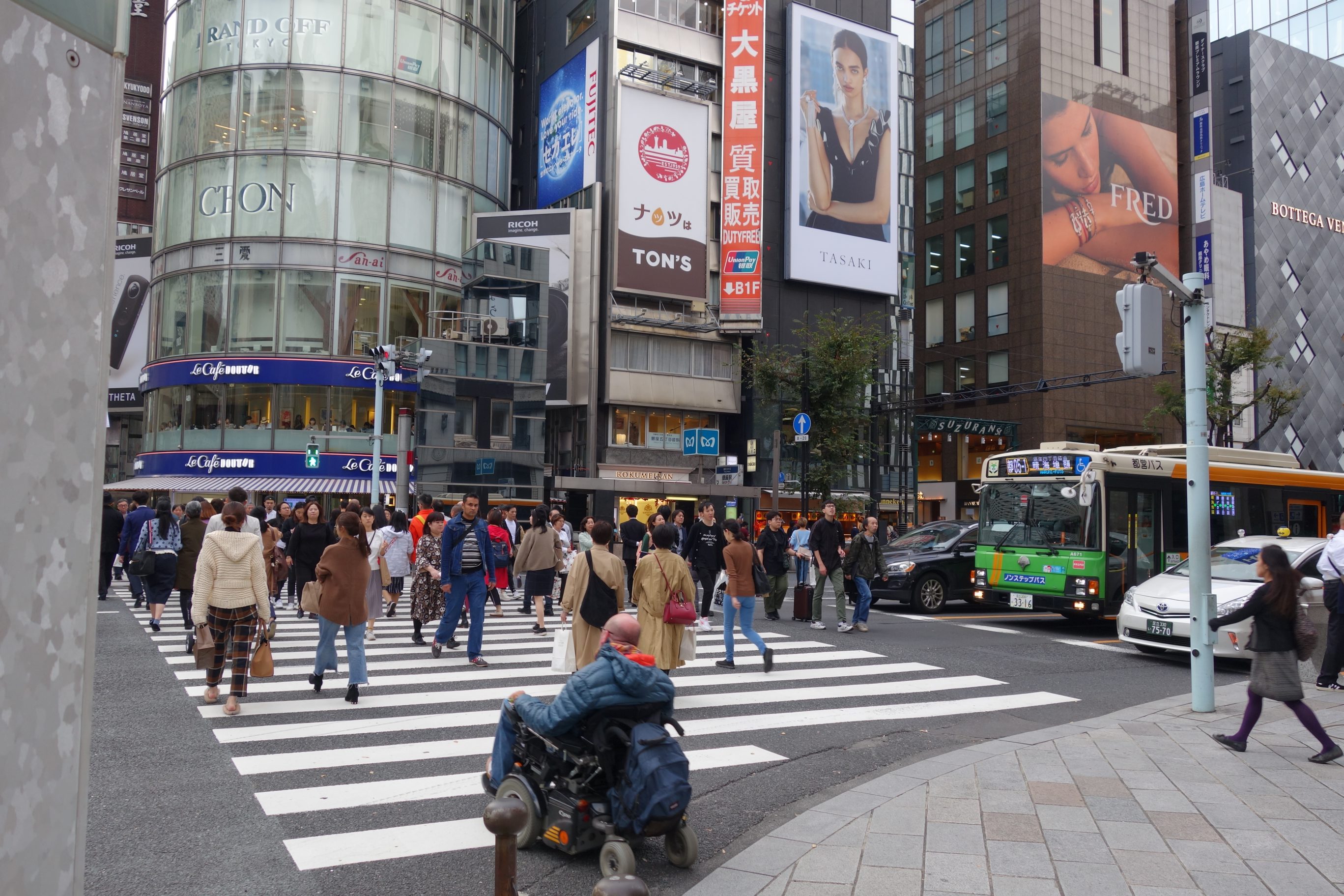- Japanese are very polite people and they are willing to help you.
- It seemed like most of the cars run on electricity. In the narrow streets one must really look around for them to avoid getting overrun.
- The air in the giant city is surprisingly clean, partly probably due to the previous observation.
- The city is also very clean of rubbish. The public toilets are tidy and smell nice.
- The Japanese seem well employed. At least the public sector has employees well in their 70`s, I saw older people working for instance at the subway stations, at roadworks and as parking attendants. The work tasks and processes didn`t always seem very effective but apparently there is value to having a job.
- There is a considerable language barrier. Sometimes even in very international environments like hotels and shopping malls many members of the staff cannot speak much English.
- Remember seeing in every modern elevator those buttons that open and closes the doors? Ever used one? Once or twice? Well, in Tokyo they were pushed more than the actual number buttons. When people are entering elevator, the person closest the buttons keeps pushing the “open” button so that everybody can get in. And when everybody is in the “close” button is used. Wait, someone is still hurrying up to this elevator…
- Very many people are wearing facial masks. I read somewhere that it is because they don`t want to spread any diseases they might have. That can`t be the whole explanation because if everyone wearing a mask was sick the whole people of Tokyo would be very sick. Are they afraid of getting an infection? As I mentioned, the air seemed quite free of pollution so that doesn`t sound a good reason either. Do people want to hide their identity behind the mask?
- There is abundance of entrepreneurs in the streets. First you notice the shops, restaurants, bars and other services with colorful, illuminated ads right next to each other on the ground level, then you realize there are also the basement level(s) and levels 1, 2, 3,… and that is the smaller streets. on busier streets there are also department stores, bigger hotels and so on. Market economy rules!
- There are a lot of maps in the public places to help people find their way. Beware: the top of the map is not north. The top of the map is the direction you’re facing reading the map. Helpful? Probably for the Google Maps generation, yes.
Random observations in Tokyo

Published in Uncategorised
Comments